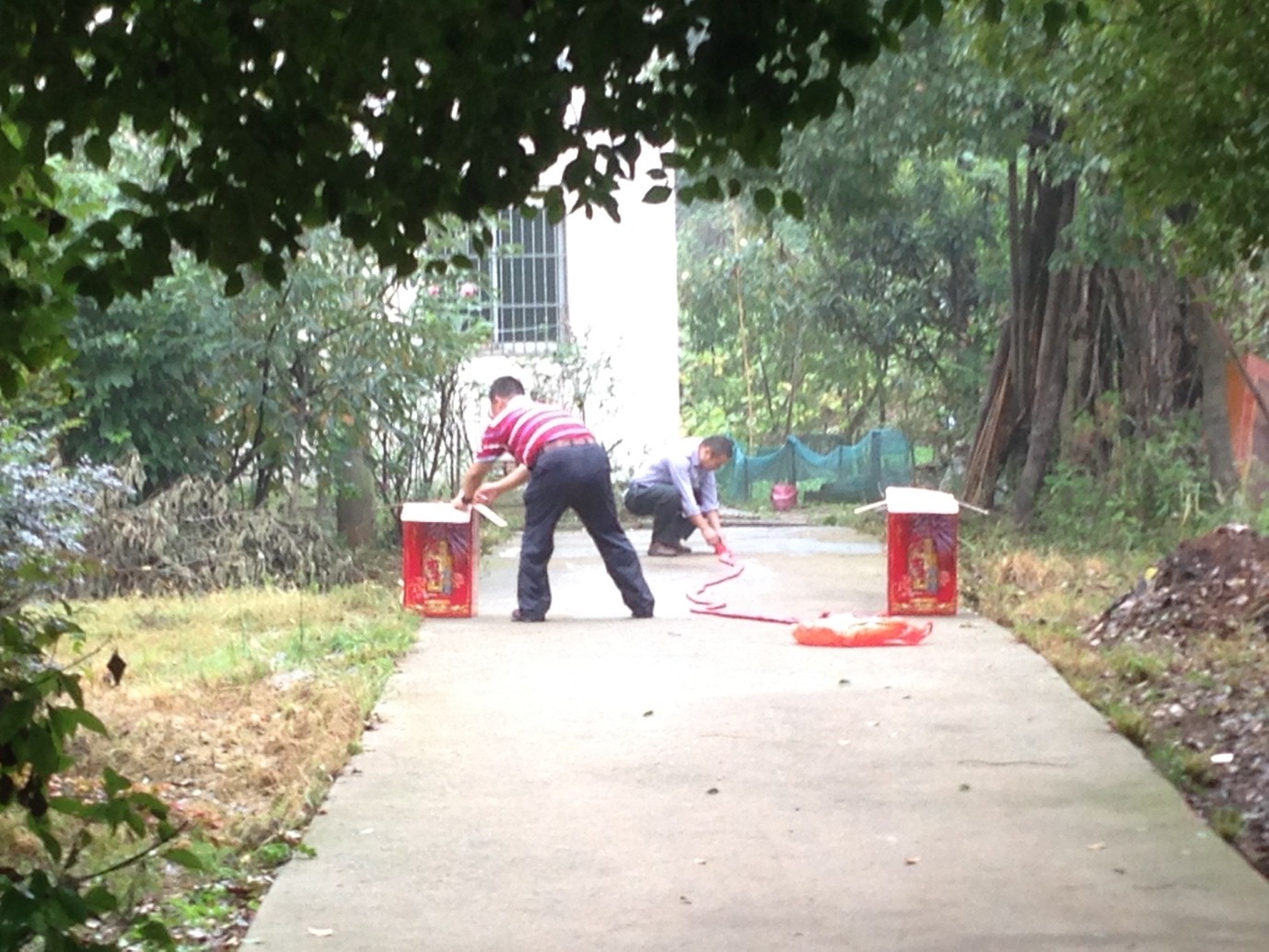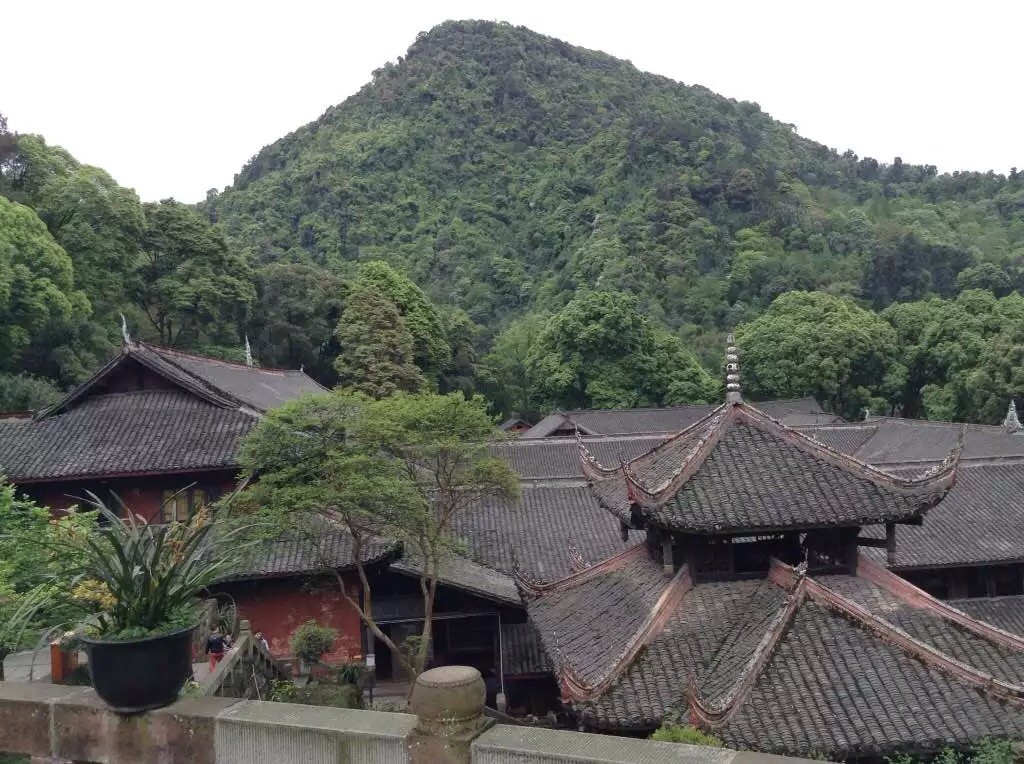A first experience of rural China – comparisons to the vast urban areas and cities
Recently, visiting the more rural China Anhui province, I was struck by the differences between the vast cities that I had visited before and had characterised my experiences of China.
Many teachers live and work within large cities that contain a variety of schools. But opportunities to travel during the numerous school holidays give teachers an opportunity to go and experience some more of rural China, which can be beautiful and extraordinary in equal measure.

Fireworks being placed for a wedding ceremony in Tongling, Anhui province. Fireworks, originally invented in China, were commonly used years before they came across to Western Europe.
I was approached by some Policemen at a rural train station whilst travelling out of the provincial capital Hefei, who were keen to get some pictures with me and talk to me about what I, as an outsider, thought of China. When giving my experiences of life in the city, they were keen to emphasise some of the differences in rural China, and spoke of how Anhui was a much poorer province with a simpler economy than the great manufacturing provinces of South China. As opposed to the giant, uniform apartment blocks that house China’s great population and exemplify the communist provision of “uniform housing for all”, there are still many traditional houses in this province: shacks and simple wooden structures that provide shelter, but also have many outside areas that the climate makes liveable on a day-to-day basis. Eating is done outside, and leisure time spent there too, with mah-jong and chess played by people sat out on porches. A lot more domestic animals are kept, mainly for food, and often walk freely around areas of farmland: cats, dogs, pigs and chickens particularly!
China, as always though, is a land of contradictions and intrigue, and due to the priorities of the people, and the relative value of things, whilst many people live in poorer conditions and do not eat expensive food, or keep expensive household items, many have top of the range current smartphones and TVs that give their view on the world! It is quite a sight to see young people hanging about in the street with no shoes on their feet, in the middle of a grassland area, but all on their phones sharing photos and messages on “WeChat!”

More traditional society and family seems to play a much more important part in rural china. As opposed to the cities, which develop an impersonal nature in many ways, in these villages the status of people is maintained by the job they do, their age, and their position in the family. One of the local school principals is proudly introduced to me and championed as he is one of the only people in this area that can speak some English, which he proudly demonstrates to me, even cracking a few jokes! Some of the older Chinese living in these rural areas lament how the younger generation are ruled by technology and work in the busy cities. They feel China should remember its roots, and many of the older Chinese pass the time by listening to old radios playing tapes of Mao’s speeches, and old communist songs that they proudly sing along to and dance in the street to.
Rural China effectively takes you back in time somewhat, and gives you more of a sense of the traditional society that used to exist pre-communist revolution, and even post-communist revolution, with the recent modern China exemplified by its economic powerhouse cities, being in effect actually a very new phenomenon.